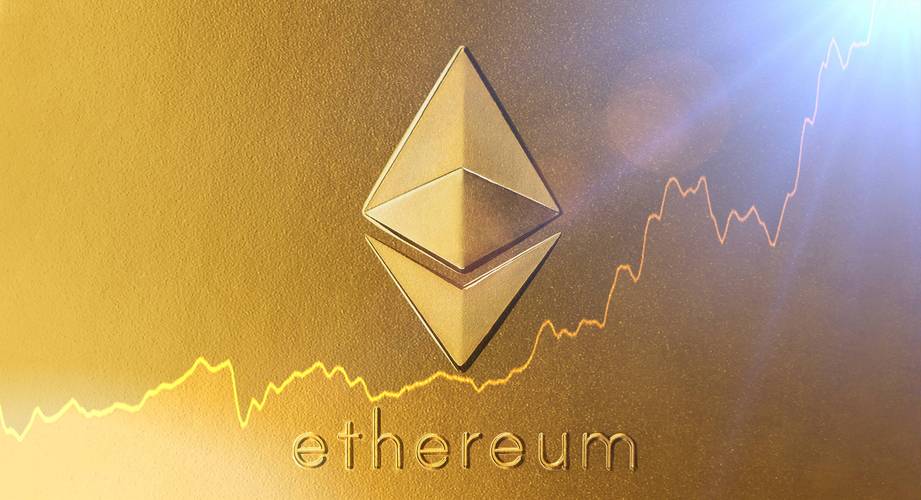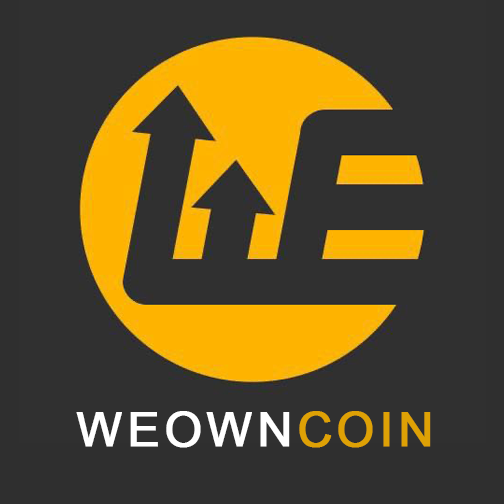WEOWNCOIN︱Exploring Ethereum: A Next-Gen Smart Contract Powerhouse
Introduction:
Smart contract technology is a significant innovation in the field of blockchain, providing ample opportunities for the development of decentralized applications (DApps) and issuance of digital assets. Among various smart contract platforms, Ethereum is widely acknowledged as a next-generation platform. This article will discuss the characteristics and innovations of Ethereum as a next-gen smart contract platform, including its advantages in programmability, decentralized applications, and digital asset issuance, supported by queryable and verifiable real-world examples.

Programmability: One of the most distinctive features of Ethereum is its programmability, meaning developers can create custom application logic using smart contract languages like Solidity. Compared to traditional contract mechanisms, Ethereum's smart contracts offer higher flexibility and scalability.
For instance, decentralized finance (DeFi) applications have proliferated on Ethereum. Through smart contracts, users can engage in decentralized lending, trading, and prediction markets without traditional financial intermediaries. This programmability allows room for innovative financial products and services, making Ethereum an essential platform for financial innovation.
Decentralized Applications: Ethereum is not just a smart contract platform but also offers an environment for building and running decentralized applications. Through Ethereum's Virtual Machine, developers can deploy and execute various decentralized applications, achieving intermediary-free and transparent interactions.
A typical case is CryptoKitties, a digital pet collection and breeding game on Ethereum. Each digital cat is a unique non-fungible token (NFT). Through smart contracts, CryptoKitties players can buy, trade, and breed digital cats directly on Ethereum without third-party interference.
This case exemplifies Ethereum's capability as a decentralized application platform, offering users new digital experiences and interaction methods.
Digital Asset Issuance: Ethereum has also become a significant platform for digital asset issuance. Through Ethereum's smart contracts, anyone can issue their digital assets, such as tokens, tokenized assets, and cryptocurrencies, providing more possibilities for asset innovation and liquidity.
A typical case is the Initial Coin Offering (ICO), a fundraising mechanism for startups. By issuing tokens, companies can attract investors to participate in their projects and benefit from token appreciation in future development.
However, ICOs also face regulatory and investment risks; therefore, careful assessment is needed before participation.
Conclusion:
As a next-generation platform for smart contracts, Ethereum offers advantages in programmability, decentralized applications, and digital asset issuance. Through queryable and verifiable real-world examples, we can see Ethereum's innovations and applications in practice. Whether in decentralized finance or digital art collection and trading, Ethereum offers users new digital experiences and interaction methods.
Despite Ethereum's significant achievements in innovation and development, it also faces challenges, such as scalability issues and high transaction fees, limiting its large-scale application. To solve these issues, upgrades are underway, including the introduction of ETH 2.0 and Layer 2 solutions.
In summary, Ethereum provides ample room for innovation and decentralized applications as a next-gen smart contract platform. It is becoming a significant force in advancing blockchain technology through its advantages in programmability, decentralized applications, and digital asset issuance. With continuous technological advancements and expanding application scenarios, Ethereum is expected to play a vital role in pushing blockchain technology across various domains.
References:
Nakamoto, S. (2008). Bitcoin: A peer-to-peer electronic cash system. Retrieved from https://bitcoin.org/bitcoin.pdf
Buterin, V. (2013). Ethereum white paper. Retrieved from https://ethereum.org/whitepaper/
[...]
About WEOWNCOIN:

Established in 2018, WEOWNCOIN Exchange is a leading international platform for blockchain digital assets, embracing regulation and operating in compliance. Its core team members come from countries such as the United States, Germany, China, and South Korea and have years of cutting-edge experience in blockchain technology. The exchange has a decentralized security system and asset firewall protection system that effectively prevents DDOS attacks. In collaboration with top global security organizations, WEOWNCOIN aims to rapidly dominate markets in the United States, Hong Kong, Vietnam, Taiwan, Japan, Singapore, etc., providing top-notch asset security to global users. The platform offers a secure, efficient, fair, and transparent trading environment. With a focus on accelerating the development of the blockchain industry, it has set strategic plans for global expansion. The user interface of its app is designed for simplicity and ease of use, supported by multi-language, 7X24 customer service. Currently, it holds an MSB license in the United States and is subject to FinCEN regulations, allowing it to legally engage in cryptocurrency trading and related businesses.
Disclaimer: The copyright of this article belongs to the original author. Reposting this article is solely for the purpose of information dissemination and does not constitute any investment advice. If there is any infringement, please contact us immediately. We will make corrections or deletions as necessary. Thank you.







